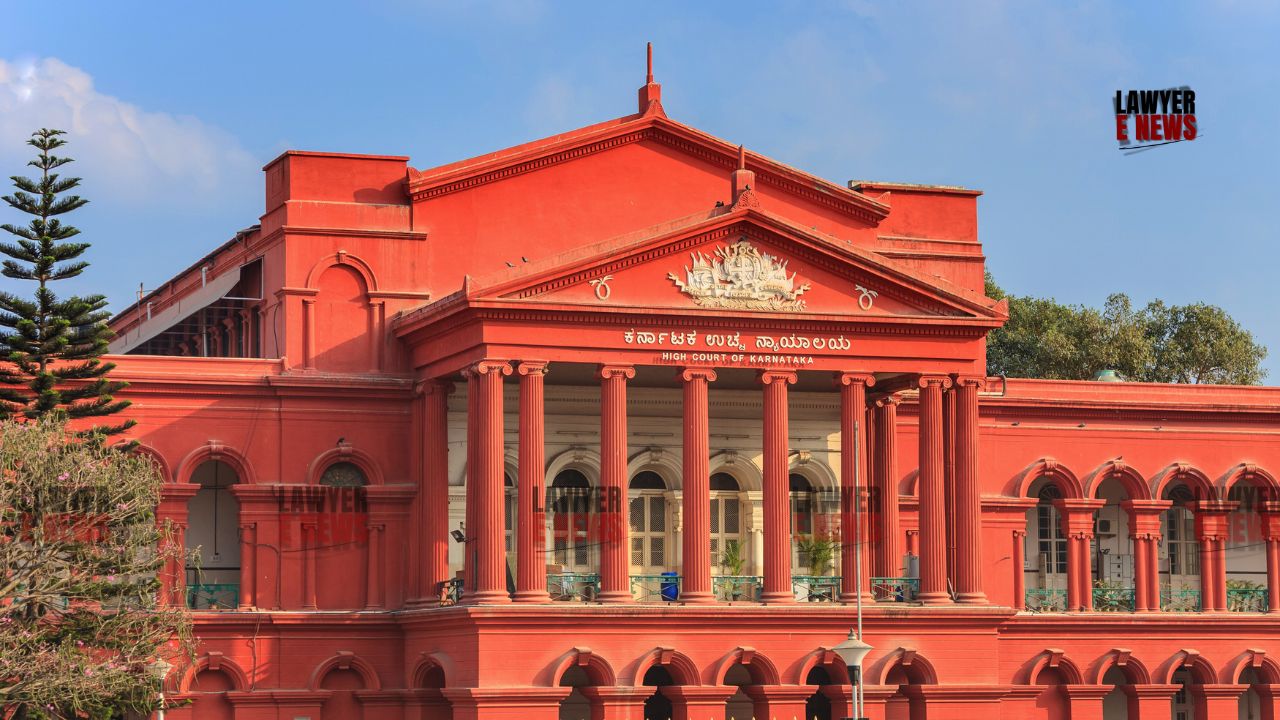-
by Admin
15 February 2026 5:01 PM



Karnataka High Court quashed criminal proceedings initiated against former Karnataka BJP State President and ex-Member of Parliament, Sri Naleen Kumar Kateel, in connection with alleged extortion under the guise of the Electoral Bond Scheme. The case, registered as Crime No. 224 of 2024, alleged extortion under Section 384 IPC, criminal conspiracy under Section 120B IPC, and common intention under Section 34 IPC.
The Court held that the complaint failed to meet the statutory ingredients of extortion under Section 383 IPC, namely, intentional fear, dishonest inducement, and delivery of property. It further emphasized that only an aggrieved person—one who has been put in fear and delivered property as a result—can complain of extortion. The Court also criticized the Magistrate for acting without sufficient application of mind in referring the complaint for investigation.
Electoral Bond Allegations and Supreme Court Rulings
The case revolved around allegations made by Adarsh R. Iyer, Co-President of the Janaadhikaara Sangharsha Parishath (JSP), who claimed that corporate entities were coerced into purchasing electoral bonds by being threatened with Enforcement Directorate (ED) raids. The petitioner, along with other high-profile individuals, including the Finance Minister and national BJP officials, was accused of orchestrating an “extortion racket” to fund political activities through the Electoral Bond Scheme.
The allegations drew heavily on the February 2024 judgment of the Supreme Court (Association for Democratic Reforms v. Union of India), which declared the Electoral Bond Scheme unconstitutional. However, in a subsequent August 2024 decision, the Supreme Court refused to constitute a Special Investigation Team (SIT) to investigate claims of quid pro quo under the scheme, stating that criminal complaints must follow the procedures established under ordinary criminal law.
The complaint against the petitioner, filed before the Magistrate, was referred for investigation under Section 156(3) of the Cr.P.C., leading to the registration of Crime No. 224 of 2024.
Justice Nagaprasanna analyzed the statutory definition of extortion under Section 383 IPC, which mandates:
Delivery of property or valuable security by the victim.
The Court noted that the complainant was not a direct victim and had not alleged being put in fear or delivering any property to the accused. Referring to precedents, including Dhananjay v. State of Bihar and Isaac Isanga Musumba v. State of Maharashtra, the Court emphasized that extortion requires an actual victim who is coerced into delivering property under threat.
The judgment observed: "What the complainant projects is a huge hocus-pocus, but alas, he has no locus. The ingredients of extortion are absent even in their prima facie sense, rendering the allegations inherently improbable."
The Court held that while criminal law can generally be set in motion by any person under Section 39 of the Cr.P.C., offences like extortion are victim-specific. It ruled that only the aggrieved party—the individual who has been put in fear and made to deliver property—has the standing to file a complaint for extortion.
Citing A.R. Antulay v. R.S. Nayak and Jagjeet Singh v. Ashish Mishra, the Court distinguished between offences affecting public interest and those requiring a specific victim. It concluded:
“The complainant, being a Co-President of a public forum, is alien to the transaction and lacks the locus to complain of extortion. Extortion cannot be set in motion by a stranger who neither suffered injury nor delivered any property.”
The Court found fault with the Magistrate's order referring the matter for investigation, stating that it was issued without due application of mind. The Magistrate failed to scrutinize whether the allegations disclosed a cognizable offence or whether the complainant had the locus standi to file the complaint.
“The Magistrate cannot become a rubber stamp to the complainant, mechanically referring matters for investigation without assessing the legal sufficiency of the allegations.”
The Court described the complaint as “frivolous” and “manifestly attended with mala fides,” and invoked the principles laid down in State of Haryana v. Bhajan Lal to quash the proceedings. It emphasized that continuing the investigation would amount to an abuse of the judicial process.
In exercising its inherent powers under Section 482 Cr.P.C., the Karnataka High Court quashed the proceedings in Crime No. 224 of 2024. Justice Nagaprasanna stated:
“In the absence of even a modicum of ingredients of the alleged offence and considering the complainant’s lack of locus, the proceedings are unsustainable in law and must be obliterated to prevent abuse of the legal process.”
Victim-Specific Nature of Extortion: Extortion requires a victim who has been coerced into delivering property under threat. A third party or a public forum cannot complain of extortion without satisfying this requirement.
Locus Standi in Criminal Law: While criminal law is generally inclusive in allowing any person to report offences, exceptions exist for victim-specific offences like extortion, where the complainant must be directly aggrieved.
Judicial Scrutiny in Magistrate Referrals: Magistrates must scrutinize complaints for legal sufficiency before referring them for investigation under Section 156(3) Cr.P.C. Mere reliance on allegations without prima facie proof violates the duty of judicial application of mind.
Preventing Abuse of Judicial Process: Frivolous or politically motivated complaints must be quashed at the earliest stage to prevent unnecessary harassment and misuse of judicial resources.
The Karnataka High Court’s decision in this case underscores the importance of adhering to statutory requirements for criminal offences and the need to prevent misuse of legal processes for ulterior motives. By reiterating the principles of locus standi and the evidentiary requirements for extortion, the Court has set a significant precedent for safeguarding individuals from baseless allegations in politically sensitive cases.
Date of Decision: December 3, 2024
